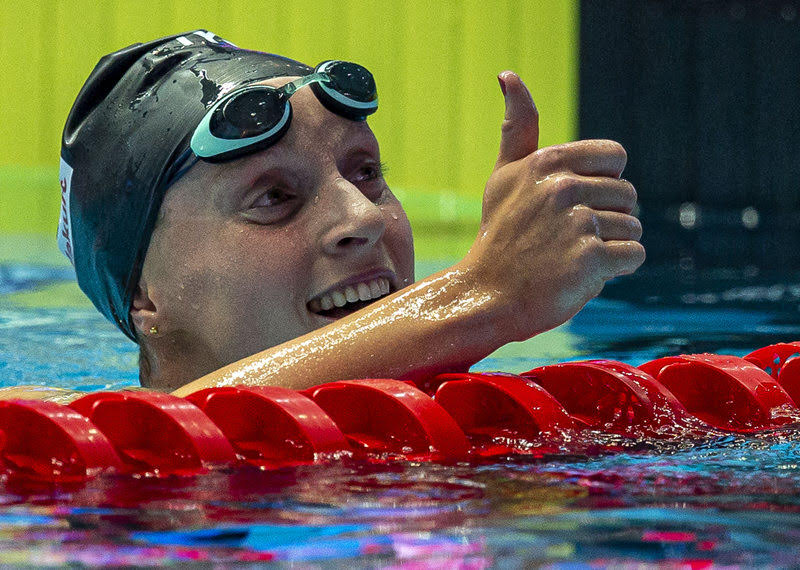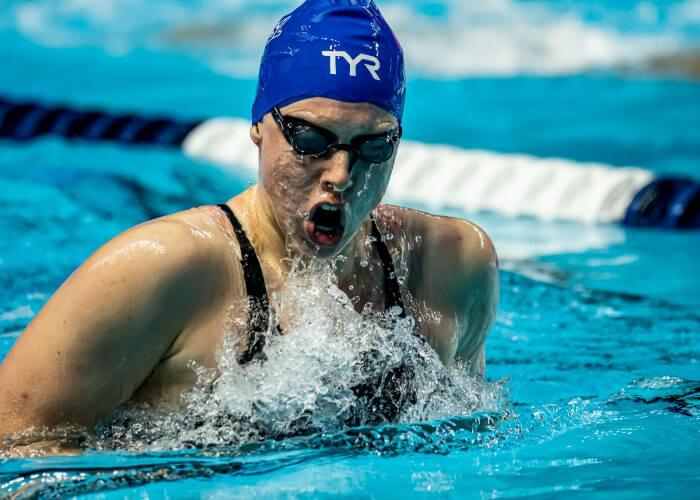Katie Ledecky, Lilly King Part of U.S. Launch of Virtual Doping Tests

Social distancing restrictions during the coronavirus pandemic have limited the amount of contact anti-doping agents have with athletes. So the U.S. is piloting virtual doping tests, and high-profile swimmers are at the forefront of the program.
The experiment of remote sample collection was tested starting two weeks ago by the U.S. Anti-Doping Agency (USADA), removing the need for in-person contact with doping control officers.
The New York Times described the 10-step protocol, which begins with the USADA mailing a testing kit to athletes and ends with the athletes sending blood and urine samples back. During a specified testing window, the athlete communicates with a tester by video call, to witness the signature on documents and virtually inspect the bathroom in which the urine sample will be supplied.
Athletes then, off camera, provide a urine sample that is verified via a temperature strip on video and sealed. A device in the kit also allows the athlete to draw a blood sample for testing, which is then sealed (on video) in the package.
Katie Ledecky, along with track and field athletes Noah Lyles, Allyson Felix, Emma Coburn and Aliphine Tuliamuk, were among more than a dozen athletes to volunteer for the program, USADA CEO Travis Tygart told the Times.
“I was happy to sign on for this,” Ledecky said. “I felt very comfortable.”

Lily King Photo Courtesy: Peter H. Bick
Lilly King, a noted proponent for clean sport who has chided rivals like Russian Yulia Efimova and Sun Yang for doping violations, also signed on to the virtual doping tests.
“Honestly, I was a little skeptical of it at first,” King told USA Today. “Then after I did my first test, I think they really thought through all the potential loopholes with the testing. There are way too many factors that would go into providing a tainted sample for you to really pull that off during the test unless you were a ridiculously high-level crook.”
The objective is for the protocols to keep sports clean even when athletes aren’t able to compete. Virtual testing, given the highly infectious nature of COVID-19, reduces risks to testers and athletes by not violating social distancing protocols. The virtual doping tests also fit with the “whereabouts” rules that the USADA mandates that athletes maintain, and the video call follows the same protocols for privacy and oversight as in-person testing.
“The accepted global gold standard is observed collection of blood and urine, out of competition, and that isn’t changing,” Tygart said, adding that virtual testing had been in the works but the mobilization was accelerated by the pandemic. He also said anti-doping bodies in Germany and Norway are developing similar programs.
The World-Anti Doping Agency has been forced to adjust its policies in recent weeks due to coronavirus, and it has engaged in a dialogue with athletes about how to balance clean sport with athlete and public safety.
Ledecky has long been an advocate for clean sport and views her support of a modified testing regime for these coronavirus times as an extension of that.
“I want the people that I’m competing against to know that I’m clean and to feel confident competing against me,” she told USA Today. “I want them to know that I have this commitment to clean sport, and I hope they all do too.”



